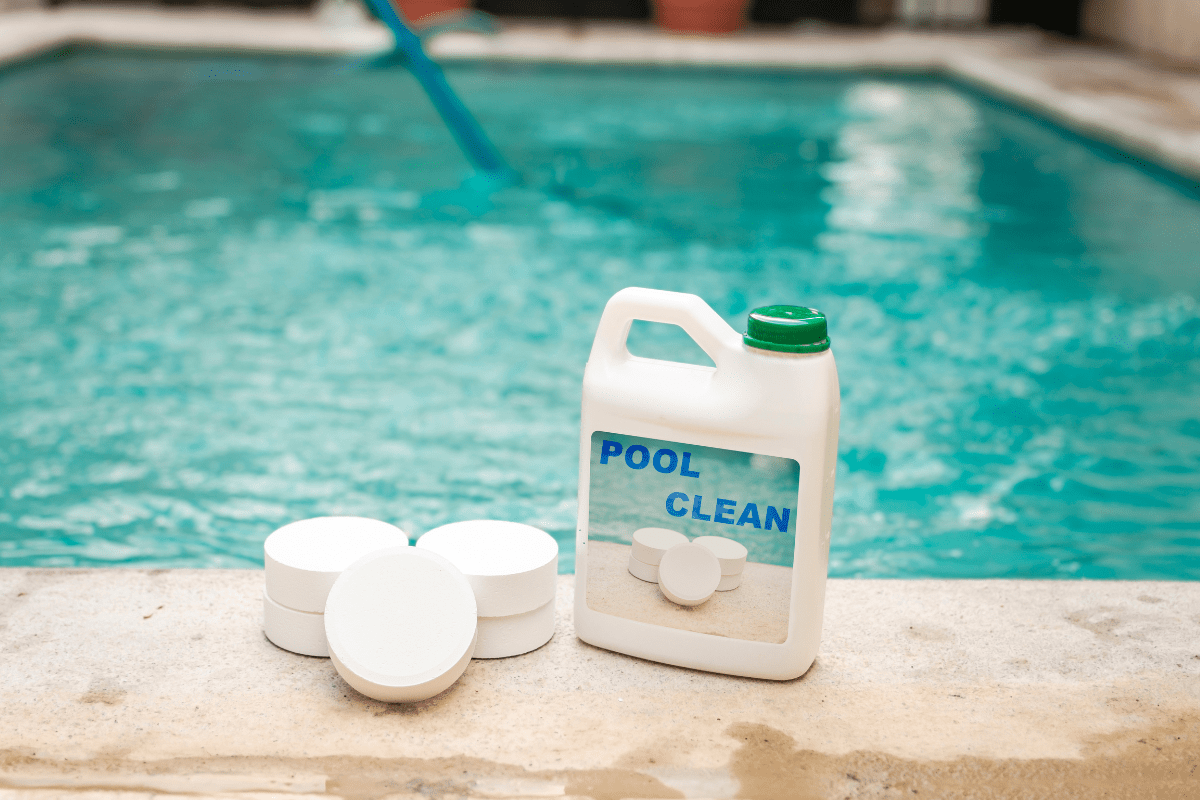Date
September 22 2023
Written By
Lizzie Shipton
Does chlorine damage swimsuit fabric? It's a question many savvy swimsuit owners want to answer. When you invest in a beautiful new swimsuit, you want it to last as long as possible, so it's only natural to wonder if your regular trips to the swimming pool are diminishing the life of your perfect swimsuit.
The short answer to this question is, yes, chlorine does damage your bathing suit. Just like UV rays from the sun, salt from ocean water, and sand from the beach, chlorine and other pool chemicals break down swimsuit material over time. Not only that, it can also wreak havoc on your hair, skin, and nails.
The good news is, you can mitigate that damage and extend the life of your suit with some simple chlorine resistant care tips.
How Does Chlorine Damage Swimsuit Fabric?

Chlorine is a corrosive chemical, which means it has the power to destroy other materials. When mixed with water, chlorine reacts chemically to form hydrochloric and hypochlorous acids. This process is called oxidation. This is the reason we see chlorine added to swimming pools: these acids are excellent at killing bacteria. Without them, the pool would be a breeding ground for disease.
6 Ways to Prevent Chlorine Damage in Your Swimsuit
The bad news is, you can't completely prevent chlorine corrosion. The good news is, you can slow it down and make its effects less harmful with a few simple preventative methods. Let's take a look at those now.
Choose Chlorine Resistant Swimwear
Not all bathing suits are created equal: the fabric of your swimsuit has some bearing on how resistant that bathing suit is to chlorine damage. Most bathing suits are made out of either lycra (spandex), polyester, or nylon.
Lycra
A 100% lycra swimsuit would be very flexible and comfortable, but it is a poor choice if you visit swimming pools regularly. Lycra breaks down very quickly when exposed to chlorine. If you swim daily, expect a 100% lycra swimsuit to last only 4-5 weeks.
Polyester
A polyester swimsuit is the most chlorine resistant of all the swimsuit fabrics. You can expect a 100% polyester swimsuit to last 3-4 times longer than lycra. It is light, durable, and retains its color better than other materials. Unfortunately, it lacks the flexibility and comfort of spandex.
Nylon
Nylon is arguably the best fabric for swimsuits, as it gives you the best of both worlds: the chlorine resistance of polyester and the flexibility of lycra. It holds up well against chlorine water and is a good choice for regular swimmers who spend a lot of time in the pool. Unfortunately, it is not quite as flexible as lycra and does not retain its color as well as a polyester swimsuit.

Wash With Cool Water Before You Get In the Pool
A cold water rinse before you dive in will do a lot to prevent damage to your bathing suit. Fabrics absorb water fastest when they first get wet - meaning that if you dive straight into the pool dry, your suit will absorb more chlorinated water than if you got the suit wet first.
Avoid Hot Water
Hot tubs are fun, but they are hard on swimsuit material. Heat breaks down swimsuit material and also accelerates corrosion, so sitting in a hot tub full of chlorine water is like doing double damage to your suit. If you can't live without a hot tub dip at the end of your swim, buy a cheap suit and use it just for that.
Wash Your Swimsuit After Every Use
Regardless of whether you spent time on the beach, in the pool, or just in the sun, you should always try to wash your swimsuit after wearing it. Salt, sun, sand, and even sunscreen can damage swimsuit material, so rinsing these out of your suit is paramount if you want to extend its life.
Check out our guide on how to wash your swimsuit for tips and tricks on how to hand wash or use washing machines.

Rinse in Cold Water After Swimming
If you can't wash your suit every time you use it, a fresh water rinse will go a long way in removing harsh chemicals from the fibers. Use cool or cold water, squeeze out as much chlorine as you can, and air dry. Avoid wringing out or twisting the suit, as this can also damage the material.
Buy a Chlorine Remover for Swimsuits
You most likely condition your hair after you get out of the pool, so why not do the same for your swimsuit? A dechlorinating solution like this one is designed to remove harsh chemicals, salt, and sunscreen from bathing suit material better than fresh water alone. After rinsing your suit, squirt some of this into a sink full of cool water, submerge the suit, and wait five minutes. Squeeze out excess water and air dry.
Can You Fix Swimsuit Chlorine Damage?

Unfortunately not. Once swimsuit material has been corroded by chlorine, there is no way to reverse the damage. You may be able to improve the appearance of the suit by conditioning it with a dechlorinating solution or doing a hand wash with a gentle, color-brightening detergent or some white vinegar.
If your suit loses elasticity or stretches, you may be able to shrink it - but be careful with this method, as it can potentially damage swimsuits if not done correctly.
The best way to keep your favorite swimsuit looking like new is to practice preventative care like the tips outlined above.
Summing It Up
Can chlorine ruin swimsuits? Yes, absolutely. But that doesn't mean you can't protect your suit from damage, prevent elasticity loss, and help keep its original shape and color. Limit exposure to chlorine if you can, skip the hot tub if you're wearing an expensive suit, always rinse with cold water before and after swimming, and wash your suit after every use if you can.
With these tips, you'll feel confident enough to wear your new swimsuit as often as you like.

